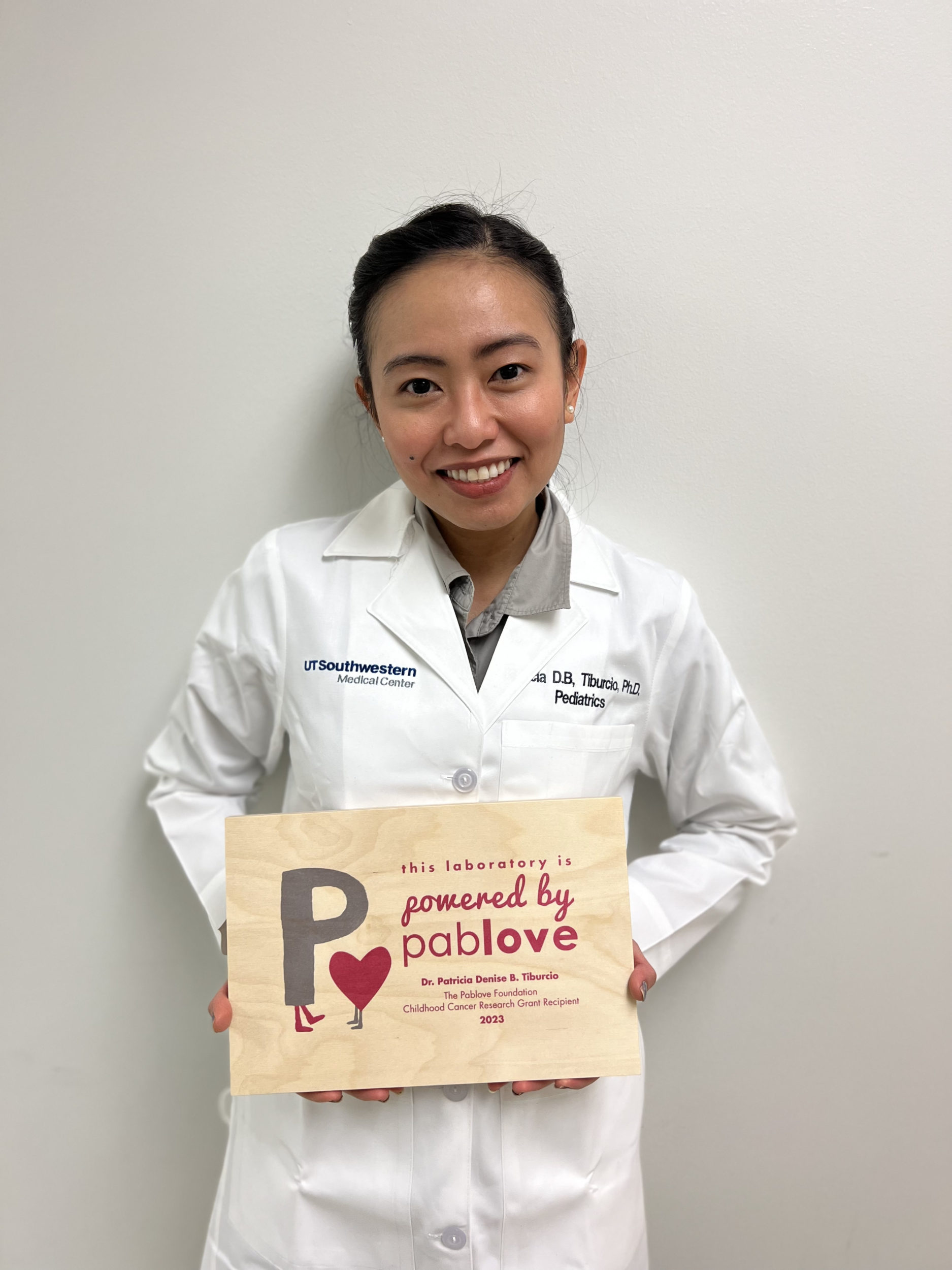Patricia Denise B. Tiburcio, PhD
University of Texas, Southwestern
Targeting Proteasome and mTOR pathways in Actinomycin-Resistant Wilms Tumors

Grant Sponsor
Wilms tumors are the most common pediatric kidney cancer and fortunately 90% of children with WT survive 5 years after diagnosis. However, 15% experience relapse, and once this happens, about half of them will likely not recover. Currently, no studies have found an effective approach to overcome chemotherapy resistance. This study will explore ways to overcome resistance to dactinomycin, one of the main drugs used for Wilms tumor and other pediatric cancers. Early data indicates that existing drugs called mTOR and proteasome inhibitors may decrease resistance to dactinomycin. With her Powered by Pablove funding, Dr. Tiburcio will examine these drugs in combination with dactinomycin to understand their potential for treatment of Wilms tumor and other pediatric cancers.
In Dr. Tiburcio’s own words:
Wilms Tumors (WT) are the most common pediatric kidney cancer. This disease is diagnosed in about 8 per 1 million children in the United States. With medical interventions such as surgery, radiation, and actinomycin-based chemotherapy, 90% of children with WT survive 5 years after diagnosis. However, among the children that survive, 15% experience relapse, and once this happens, about half of them will likely not recover. Currently, no studies have found an effective approach to overcome chemotherapy resistance. To address this, we identified vulnerabilities in WT cells that have been given actinomycin. Fortunately, these vulnerabilities have readily available drugs that can be used in combination with actinomycin, namely bortezomib and rapamycin. My work will focus on determining the effect of using these drugs with actinomycin, and how these combinations work together to eliminate the tumor cells. Moreover, I will study how these could be used in patients by first testing these on appropriate animal WT models. Learning how available drugs can be repurposed for WT could potentially provide enough evidence to proceed to a clinical trial, improving the outcomes for children with WT.